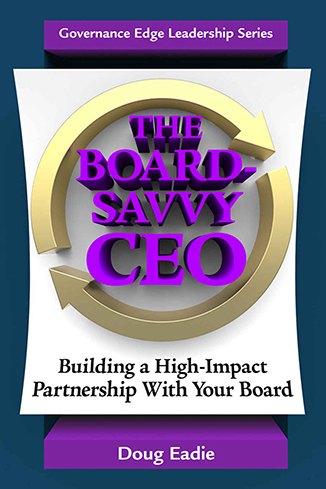You’ve got to bring incredible passion to survive and thrive at the 24/7 job of heading a public transportation authority. If you don’t, there’s a clear and present danger the inevitable pressures will wear you down and dangerously dull your effectiveness. This is one of several gems of practical wisdom that Nat Ford, Chief Executive Officer of the Jacksonville Transportation Authority and former CEO of the Metropolitan Atlanta Rapid Transit Authority and the San Francisco Municipal Transportation Agency, shares in his thoughtful new podcast recorded for a sister Doug Eadie & Company blog, boardsavvytransitceo.com. One of Nat’s preeminent professional passions – sure to be one of his top leadership priorities as the new chair of the American Public Transportation Association – is the subject of this podcast: helping transit executives aiming to take the helm of an authority (we know them as “CEO-aspirants”) succeed in one of the most challenging jobs in the public/nonprofit sector.
Interviewing Nat in this podcast, I asked why he was so passionate about CEO-aspirants. His response? First, the stakes are so high. Transit CEOs head public corporations that have a tremendous impact on the economy and quality of life of the communities they serve. And we know from experience that CEO performance and an authority’s effectiveness are closely linked. When a transit CEO’s leadership falls short, the whole community pays a steep price. Secondly, Nat points out, climbing the professional ladder in a transit authority, a CEO-aspirant cannot possibly acquire all the knowledge and cultivate all the traits essential for surviving and thriving in the top spot. For example, how should a new CEO go about building a close, positive and productive working relationship with her new board? It’s hard to think of a factor more critical to CEO success than a solid partnership with her board. But if learning to build this kind of partnership were something a CEO-aspirant naturally learns on the way up the career ladder, we wouldn’t see so many fractured board-CEO working relationships.
As Nat correctly points out, mastering the technical functions involved in operating and managing a transit authority (for example, governance, finance, strategic and capital planning, equipment maintenance, and the like) won’t begin to prepare a CEO-aspirant to succeed at the helm of an authority. Equally important are leadership traits such as inspiring and energizing employees, fostering collaboration and teamwork, and employing critical thinking in making complex decisions. Even though one or more of these traits might not come naturally to a CEO-aspirant, experience has taught that they can be learned and cultivated.
The need to provide promising executives who are CEO-aspirants with systematic education and training aimed at preparing them to succeed in the top spot is now being recognized in a number of fields, witness such programs as Leadership APTA and the Aspiring Superintendents Academy of the American Association of School Administrators (in which I am privileged to serve as a faculty member). I hope all of our readers will join me in applauding Nat for making this a top priority as APTA’s new Chair and wishing him every success in translating this priority into concrete practice.






